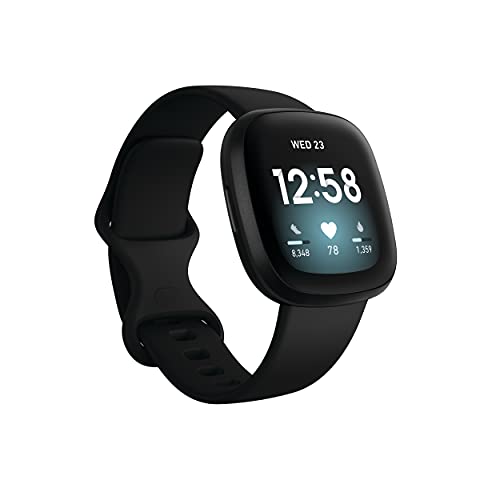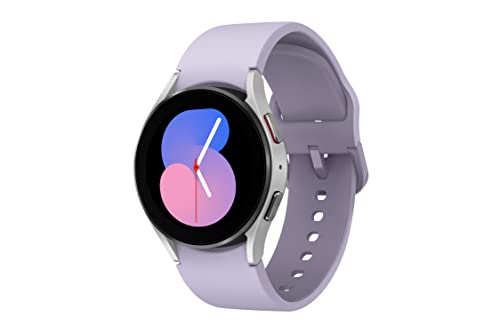Are you an athlete or a sports enthusiast? Do you often find yourself wanting to monitor your heart rate during your workouts or training sessions? Look no further! In this blog post, we have compiled a list of the top smartwatches with heart rate monitors, specially designed to cater to your needs. Whether you are a professional athlete or simply someone who loves to stay active, these smartwatches will not only track your heart rate but also provide you with valuable insights to enhance your performance. So, let’s dive in and discover the perfect companion for your fitness journey!
Top-rated smartwatches with accurate heart rate monitoring
What is a heart rate monitor?
A heart rate monitor is a device that measures the rate at which your heart beats. It provides real-time data on the number of times your heart beats per minute, also known as your heart rate. Heart rate monitors have become an essential tool for fitness enthusiasts, athletes, and individuals looking to optimize their exercise routines and maintain a healthy lifestyle.
How Does a Heart Rate Monitor Work?
Heart rate monitors typically consist of two main components: a sensor and a receiver. The sensor is worn directly on the body and detects the electrical signals produced by the heart. It can be in the form of a chest strap or a wrist-based sensor.
The sensor records the electrical activity of the heart, known as electrocardiography (ECG), and transmits this data wirelessly to the receiver. The receiver is usually a wearable device, such as a watch or a smartphone, that displays and records the heart rate data in real-time. Some heart rate monitors also have the capability to analyze this data and provide additional insights, such as calories burned or recovery time.
Benefits of Monitoring Heart Rate during Exercise
Monitoring your heart rate during exercise can provide valuable insights into your workout intensity, performance, and overall cardiovascular health. Here are some key benefits of using a heart rate monitor:
- Optimizing Training Intensity: By monitoring your heart rate, you can ensure that you are training at the right intensity to achieve your fitness goals. Whether you’re aiming to improve endurance, burn fat, or increase cardiovascular fitness, a heart rate monitor can help you stay within your target heart rate zones.
- Preventing Overexertion: Pushing yourself too hard during exercise can lead to overexertion and potential health risks. A heart rate monitor allows you to stay within a safe range and avoid pushing your cardiovascular system beyond its limits.
- Tracking Fitness Progress: Regularly monitoring your heart rate can help you track changes in your fitness level over time. By noting how your heart rate responds to different workouts, you can assess your progress, identify improvements, and set new goals.
- Preventing Undertraining: On the flip side, a heart rate monitor can also help identify when you’re not pushing yourself hard enough. By monitoring your heart rate, you can ensure that you are challenging yourself adequately to see improvements in your fitness level.
- Improving Recovery: A heart rate monitor helps you gauge your recovery time between workouts. By monitoring your heart rate during rest periods, you can determine when you have fully recovered and are ready for your next exercise session.
Choosing the Right Heart Rate Monitor
When selecting a heart rate monitor, there are a few key factors to consider. Here are some important features to look out for:
- Accuracy: Look for a heart rate monitor that provides accurate and consistent readings. Read reviews and compare different models to make an informed decision.
- Comfort: Opt for a heart rate monitor that feels comfortable to wear, especially if you plan to use it during longer workouts.
- Connectivity: Consider whether you want your heart rate monitor to sync with other devices or fitness apps. Wireless connectivity ensures you can store and analyze your heart rate data easily.
- Battery Life: Check the battery life of the heart rate monitor, especially if you plan to use it during longer workouts or events.
Factors to consider when choosing a smartwatch with heart rate monitor
Smartwatches have become an essential tool for athletes and sports enthusiasts who want to track their fitness goals accurately. With the added benefit of a heart rate monitor, these devices can provide valuable insights into your training progress and overall health. However, with so many options available on the market, it can be overwhelming to decide which smartwatch is right for you. Here are some key factors to consider when choosing a smartwatch with a heart rate monitor:
Accuracy
When it comes to heart rate monitoring, accuracy is paramount. A reliable smartwatch should be able to measure your heart rate with minimal deviations. This is especially crucial during high-intensity workouts when your heart rate is constantly changing. Look for a smartwatch that uses advanced sensors and algorithms to provide precise heart rate readings.
Some factors to consider:
- Optical heart rate sensors: Look for a smartwatch that uses optical sensors to measure your heart rate. These sensors use light to detect changes in blood flow, providing accurate readings.
- Validation studies: Check if the smartwatch has been subjected to validation studies that compare its heart rate measurements against a medical-grade device. This will give you confidence in the accuracy of the readings.
Battery Life
The battery life of a smartwatch is another essential factor to consider, especially for athletes who engage in long-duration activities. You need a device that can keep up with your training sessions without constantly needing to be charged. Some smartwatches offer extended battery life, while others may require frequent charging.
Key points to consider:
- Longevity: Look for a smartwatch that offers a battery life that aligns with your needs. If you often engage in long workouts or multi-day activities, choose a device with a longer-lasting battery.
- Power-saving features: Some smartwatches come with power-saving modes that allow you to conserve battery life when needed. This feature can be particularly useful during long hikes or races.
Compatibility with Fitness Apps
If you already use fitness apps to track your training progress, it’s crucial to ensure that your smartwatch is compatible with these apps. This compatibility allows for seamless integration and synchronization, making it easier to analyze your data and monitor your progress over time.
Consider the following:
- App compatibility: Check if the smartwatch is compatible with popular fitness apps such as Strava, Nike Run Club, or MyFitnessPal. This will ensure that your data seamlessly transfers between devices.
- Data synchronization: Look for a smartwatch that offers automatic data synchronization with your preferred fitness apps. This saves you the hassle of manually transferring data, allowing you to focus on your training.
Water Resistance
Water resistance is a crucial feature for athletes who engage in water-related activities or simply want the convenience of wearing their smartwatch all day, regardless of the weather. Whether you’re swimming, running in the rain, or sweating profusely during a workout, you need a smartwatch that can withstand these conditions.
Consider these aspects:
- Water resistance rating: Look for a smartwatch with a high water resistance rating (e.g., 5 ATM or higher), indicating that it can withstand water immersion up to a certain depth.
- Swim tracking: If you’re a swimmer, ensure that the smartwatch offers swim tracking features, including stroke detection, lap counting, and swim duration.
In conclusion, when choosing a smartwatch with a heart rate monitor, it’s important to consider accuracy, battery life, compatibility with fitness apps, and water resistance. With these factors in mind, you’ll be able to find a smartwatch that meets your training needs and helps you achieve your fitness goals.
Top smartwatches with heart rate monitor for athletes
Smartwatches have become a popular accessory for athletes, offering a range of features to enhance their training and performance. One key feature that many athletes look for in a smartwatch is accurate heart rate monitoring. Monitoring your heart rate during exercise can help you track your effort levels, improve your training efficiency, and prevent overexertion. In this blog post, we will explore the top smartwatches available in the market that come with accurate heart rate monitoring features specifically designed for athletes.
Apple Watch Series 6
The Apple Watch Series 6 is widely regarded as the gold standard when it comes to smartwatches for athletes. With its advanced heart rate sensor and algorithm, it provides precise and continuous monitoring of your heart rate during workouts. Key features include:
- ECG App: You can take an electrocardiogram directly from your wrist to monitor any irregularities in your heart rhythm.
- Blood Oxygen Level Monitoring: It measures the oxygen saturation level in your blood, providing insights into your overall fitness and well-being.
- Activity Tracking: The Apple Watch Series 6 tracks a wide range of activities, including running, cycling, swimming, and more.
- Workout Detection: It automatically detects when you start a workout and records your heart rate data accordingly.
- Third-party App Integration: The Apple Watch Series 6 is compatible with various fitness apps, allowing you to customize your tracking and training experience.
Garmin Forerunner 945
The Garmin Forerunner 945 is specifically designed for serious athletes who demand accurate heart rate monitoring and comprehensive training data. Key features include:
- Pulse Oximeter: Similar to the Apple Watch Series 6, it measures your blood oxygen level, helping you understand how well your body is adapting to training and altitude changes.
- Advanced Running Dynamics: It provides in-depth running metrics, including ground contact time, stride length, and vertical oscillation.
- Training Load: The Forerunner 945 analyzes your training history and provides insights into your performance, recovery, and overall training load.
- Livetrack Feature: You can share your location and heart rate data with selected contacts for added safety and motivation during outdoor workouts.
- Multi-sport Compatibility: The Forerunner 945 supports a wide range of sports, including running, cycling, swimming, and triathlon.
Fitbit Sense
Fitbit is known for its fitness trackers, but the Fitbit Sense takes it a step further with its heart rate monitoring capabilities and advanced health features. Key features include:
- Stress Management: The Sense includes an electrodermal activity (EDA) sensor that measures your body’s response to stress and provides guided breathing exercises to help you relax.
- Skin Temperature Sensor: It monitors your skin temperature variation, aiding in the detection of potential illnesses or changes in overall well-being.
- Sleep Tracking: The Fitbit Sense tracks your heart rate, sleep stages, and sleep quality, giving you a comprehensive understanding of your sleep patterns.
- Built-in GPS: It offers real-time pace and distance tracking for outdoor activities without needing to carry your smartphone.
- Compatible with Fitbit App: The Fitbit Sense seamlessly integrates with the Fitbit app, where you can track your workouts, set goals, and monitor your progress over time.
Comparison Table
| Smartwatch | Heart Rate Monitoring | Additional Features |
|---|---|---|
| Apple Watch Series 6 | Accurate and continuous | ECG app, Blood Oxygen Monitoring, Activity Tracking |
| Garmin Forerunner 945 | Accurate and comprehensive | Pulse Oximeter, Advanced Running Dynamics, Training Load |
| Fitbit Sense | Comprehensive and advanced | Stress Management, Skin Temperature Sensor, Sleep Tracking |
Choose the Best for Your Training Needs
When it comes to finding the best smartwatch for heart rate monitoring as an athlete, all three options discussed above provide accurate and comprehensive data. The choice ultimately comes down to personal preferences, compatibility with your smartphone, and specific features that matter most to you. Whether you are a dedicated runner, cyclist, swimmer, or enjoy a combination of different sports, these top smartwatches will undoubtedly take your training and performance to the next level. Now it’s time to invest in a smartwatch that suits your needs and helps you achieve your fitness goals.
Benefits of using a smartwatch with heart rate monitor
Smartwatches with heart rate monitors have become increasingly popular among athletes and sports enthusiasts. These wearable devices offer a wide range of benefits that can greatly enhance training and overall health. Here, we will discuss the advantages of using a smartwatch with a heart rate monitor, and how they can help optimize training, monitor recovery, and improve overall health.
1. Heart Rate Tracking for Training Optimization
One of the main benefits of using a smartwatch with a heart rate monitor is the ability to track and analyze heart rate data during exercise. This data can provide valuable insights into training intensity, allowing athletes to optimize their workouts for maximum efficiency. Some key benefits include:
- Training Zones: Smartwatches can help athletes determine their optimal heart rate zones for different types of workouts, such as endurance training or high-intensity interval training (HIIT).
- Real-time Feedback: Smartwatches provide real-time heart rate feedback, allowing athletes to monitor their exertion levels and make adjustments during workouts.
- Improving Performance: By tracking heart rate data over time, athletes can identify trends and patterns that may indicate areas for improvement in their training regimen.
2. Monitoring Recovery and Preventing Overtraining
Another significant advantage of smartwatches with heart rate monitors is the ability to monitor recovery and prevent overtraining. By tracking heart rate variability (HRV), these devices can provide insights into the body’s readiness for exercise and recovery. Some key benefits include:
- Rest Days: Smartwatches can help athletes identify when they need to schedule rest days based on their heart rate variability, preventing overtraining and reducing the risk of injury.
- Recovery Assessment: Monitoring HRV can provide athletes with a quantitative measure of their recovery status, helping them determine when they are sufficiently recovered to engage in intense training again.
3. Overall Health Monitoring
In addition to optimizing training and monitoring recovery, smartwatches with heart rate monitors can help users track their overall health. These devices provide insights into one’s cardiovascular health and can help detect potential health issues. Some key benefits include:
- Resting Heart Rate (RHR): By regularly tracking resting heart rate, smartwatches can help users identify changes in cardiovascular health and detect potential signs of overtraining or illness.
- Sleep Tracking: Many smartwatches also offer sleep tracking capabilities, allowing users to monitor their sleep patterns and quality, which is vital for overall health and recovery.
- Stress Management: Some smartwatches include stress tracking features that measure heart rate variability and provide insights into stress levels. This information can help users manage stress and improve overall well-being.
Final thoughts on the best smartwatches with heart rate monitors for athletic performance
In summary, finding the perfect smartwatch with a heart rate monitor is crucial for athletes and sports enthusiasts. This article emphasized the need to carefully consider accuracy, battery life, compatibility, and water resistance. By taking these factors into account, individuals can make an informed decision that aligns with their specific needs and desires.














